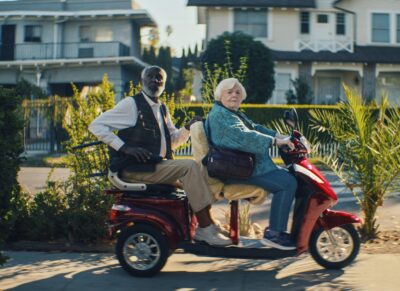The latest episode of Inside the Arthouse features La Cocina filmmaker Alonso Ruizpalacios. The drama takes us behind the scenes at a Times Square restaurant, illuminating the lives of the people who prepare and serve our meals while chasing the American Dream. The ensemble cast, which includes two-time Academy Award-nominee Rooney Mara, delivers stunning performances in this beautifully shot film.
Laemmle Theatres opens La Cocina this Friday at the Monica Film Center. Writer-director Alonso Ruizpalacios will participate in Q&A’s after the 7 PM screening at the Monica Film Center on Friday, November 1st and the 4 PM screening on Saturday, November 2. He will introduce the 7 PM screening on Saturday, November 2. Producer Ivan Orlic and actor Eduardo Olmos will participate in a Q&A after the 1 PM screening on Saturday, November 2.
“There’s a surging life force felt in every scene of Alonso Ruizpalacios’ superbly acted La Cocina — at times ebullient but more often on edge, if not careening dangerously toward disaster or violence.” ~ David Rooney, Hollywood Reporter
“La Cocina Mexican writer/director Alonzo Ruizpalacios’ searing black-and-white slice of nightmare, is a monumental work of righteous anger.” ~ Robert Daniels, RogerEbert.com
“La Cocina is a phenomenal showcase for Briones, who gives one of the most mesmerizingly multi-faceted performances of the year.” ~ Brian Tallerico, RogerEbert.com
“La Cocina goes further than recasting the American dream as a nightmare and the much sought-after visa as a ticket to infinite exploitation.” ~ William Repass, Slant Magazine

